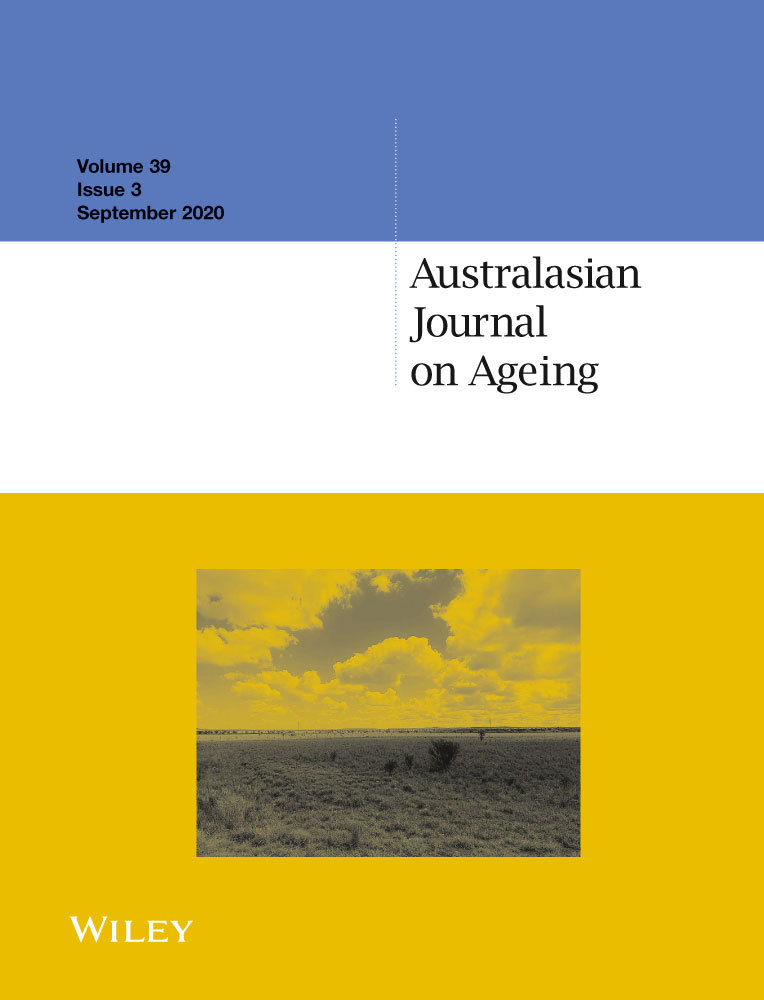INVITED EDITORIAL
Using interpreters with culturally and linguistically diverse older adults: What do we need to know?
Anne Pamela Frances Wand,
Corresponding Author
Anne Pamela Frances Wand
Department of Aged Care Psychiatry, Prince of Wales Hospital, Sydney, New South Wales, Australia
Discipline of Psychiatry, School of Medicine, University of New South Wales, Sydney, Australia
Search for more papers by this author Diba Pourmand,
Diba Pourmand
Transcultural Mental Health Centre, Parramatta, New South Wales, Australia
Search for more papers by this author Brian Draper,
Brian Draper
Department of Aged Care Psychiatry, Prince of Wales Hospital, Sydney, New South Wales, Australia
Discipline of Psychiatry, School of Medicine, University of New South Wales, Sydney, Australia
Search for more papers by this author
Anne Pamela Frances Wand,
Corresponding Author
Anne Pamela Frances Wand
Department of Aged Care Psychiatry, Prince of Wales Hospital, Sydney, New South Wales, Australia
Discipline of Psychiatry, School of Medicine, University of New South Wales, Sydney, Australia
Search for more papers by this author Diba Pourmand,
Diba Pourmand
Transcultural Mental Health Centre, Parramatta, New South Wales, Australia
Search for more papers by this author Brian Draper,
Brian Draper
Department of Aged Care Psychiatry, Prince of Wales Hospital, Sydney, New South Wales, Australia
Discipline of Psychiatry, School of Medicine, University of New South Wales, Sydney, Australia
Search for more papers by this author
First published: 13 October 2020
No abstract is available for this article.
Conflicts of interest
No conflicts of interest declared.
REFERENCES
- 1 Federation of Ethnic Communities’ Councils of Australia. Review of Australian Research on Older People from Culturally and Linguistically Diverse Backgrounds. Deakin, ACT: Australian Government Department of Social Services; 2015.
- 2Wand APF, Pourmand D, Draper B. Working with interpreters in the psychiatric assessment of older adults from culturally and linguistically diverse backgrounds. Int Psychogeriatr. 2019; 1-6.
- 3Farooq S, Kingston P, Regan J. Working through interpreters in old age psychiatry: a literature review. Mental Health Rev J. 2015; 20(1): 36-47.
- 4Haralambos B, Tinney J, LoGiudice D, Lee SM, Lin X. Interpreter-mediated cognitive assessments: Who wins and who loses? Clin Gerontol. 2018; 41(3): 227-236.
- 5 British Psychological Society. Working with Interpreters: Guidelines for Psychologists. Leicester, UK: The British Psychological Society; 2017. https://www.bps.org.uk/sites/bps.org.uk/files/Policy/Policy%20-%20Files/Working%20with%20interpreters%20-%20guidelines%20for%20psychologists.pdf. Accessed October 14, 2019.
- 6Hadziabdic E, Hjelm K. Working with interpreters: practical advice for use of an interpreter in healthcare. Int J Evid Based Healthc. 2013; 11(1): 69-76.
- 7 Department of Health, Commonwealth of Australia, Canberra. Actions to support older Culturally and Linguistically Diverse people: a guide for aged care providers. 2019. https://agedcare.health.gov.au/sites/default/files/documents/02_2019/actions-to-support-older-cald-people-a-guide-for-aged-care-providers.pdf. Accessed November 20, 2019.




